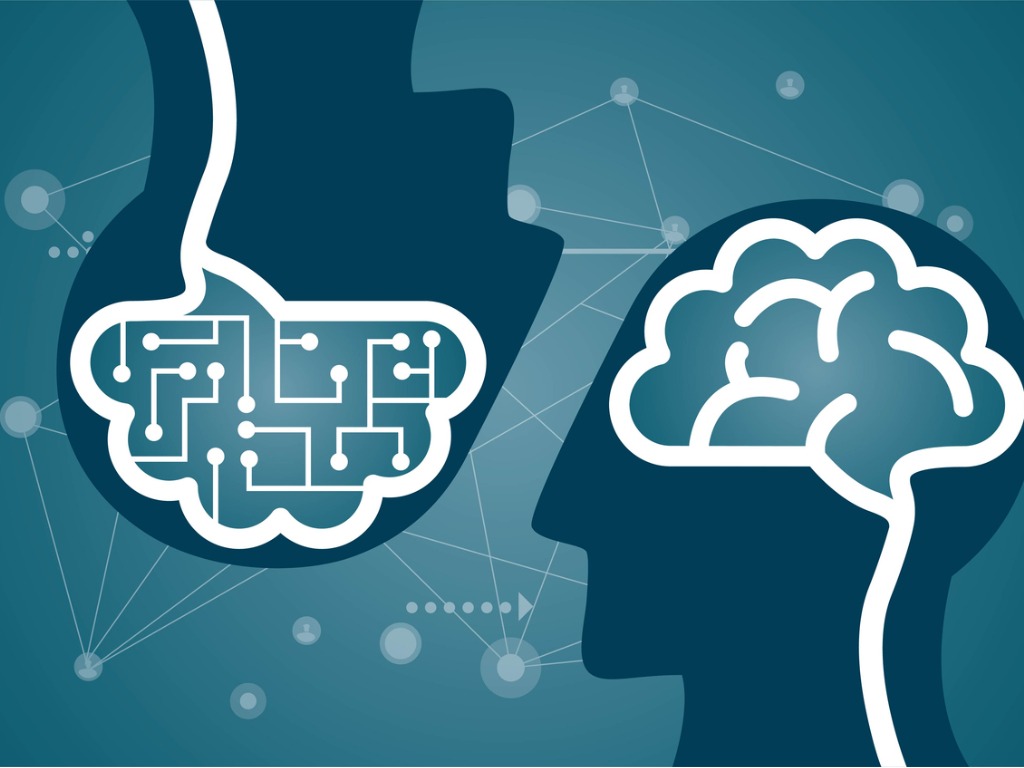
Leaders need to prioritise developing empathy, compassion and purpose, explains Thom Dennis
Artificial intelligence (AI) is going to impact your life significantly and soon. ChatGPT is just one recent manifestation, which has ignited a user take-up rate far exceeding expectations, with others in close pursuit. The World Economic Forum says a quarter of jobs will be impacted over just the next five years as a result of technology and digitalisation. BT has unveiled its strategy to decrease its workforce by up to 55,000 employees by the year 2030, with roughly 10,000 positions being substituted with artificial intelligence. UK energy giant Octopus Energy reported that customer experience satisfaction is greater in those who have interacted with an AI-driven assistant (80% customer satisfaction) compared with human staff (65%).
So where does this leave leaders and their teams?
What Are the Effects We Can Expect?
The truth is, at this early stage we can only guess what the actual effects and implications of AI will be, and how quickly things may change. We are going to live in an increasingly automated and influenced world, and AI will audit and improve productivity in probably all aspects of business. The difficulty is that even its creators are unsure about what it’s capable of, how quickly that capability will develop, and what the impacts will be.
Leaders often take decisions without exploring the unintended consequences that are likely to ensue; with AI, there are few precedents to work with to begin to understand the consequences. AI will often save us money and time, but the trouble is it is very crude and is a runaway train, and runaway trains tend to crash. So, should we be excited or anxious about it, or are we always alarmed by the new? Wherever AI is going to take us, as humans we must maintain an extremely high level of vigilance and also a real sense of our own autonomy.
The Potential Benefits Associated With AI
Apart from increasing the profit and bottom line, AI will help in countless ways, from aiding recruitment and addressing employment shortages and skills gaps to making more time for creativity and big thinking. AI is sure to improve efficiency and effectiveness by helping streamline workflow, automating time-consuming tasks and enhancing customer experience. Processes can be super-organised, and AI will improve accuracy and minimise human error as long as it is fully and accurately programmed. There are excellent opportunities for instance in the health field with the potential for AI to examine and diagnose increasing numbers of diseases better than a team of humans.
Key Problems Associated With AI
There isn’t enough control
There were three boundaries that experts called for at the earliest stages: don’t put AI on the open internet until you solve the control problem, don’t teach AI to code because that makes it self-designing without inherent control, and don’t have other AIs prompting it. As entrepreneur and writer Mo Gawdat has reflected, we have crossed all three. The only way to defend against a super-intelligence is with another super-intelligence, so we are in a situation of runaway competition and governments that are slow to act and far from ready. ChatGPT is based on reinforcement learning – if you get an answer that is wrong, you can ask it to think again, so one of the implications is that it will learn ethics and morality as it develops according to how we interact. It is not only well-intentioned people looking for an advantage in the use of this technology; AI is already seen to reflect unconscious as well as conscious biases, and the influence can be subtle and pernicious.
Security and privacy concerns
From AI’s ability to make decisions to handling personal data and the potential risks of cyber-attacks and data breaches, it is difficult but crucial for us to collaborate across countries to comprehend these risks and take necessary measures to minimise them. The precedent has been achieved in the case of human cloning, which is an active area of research today but is not in medical practice anywhere in the world.
Job losses
Goldman Sachs estimates that as many as 300 million full-time jobs globally could be automated in some way by the newest wave of AI. Many of these job losses, but not all, will likely affect the roles of lower-income employees and minorities, meaning further exclusion or discrimination for these staff and a potential greater separation of groups of people when so much effort is going into increased inclusion.
Misinformation and fake news
Any inaccuracy or sloppiness in the phrasing of prompts will likely result in unexpected, misleading and often unwelcome results. Vuelio and Danebury’s research showed that two-thirds (67%) of polled business decision-makers worry about their company falling victim to fake news/misinformation, and there is a danger of ruining reputations with 77% believing fake news/misinformation would cause their company reputational damage.
Losing our sense of being human
We already suffer from not being truly seen as we are, with social media only presenting very limited facets. This suggests a possible lack of work connection and being habitually time-short, resulting in a loss of social connection and empathy, and increased isolation.
How Can We Stay Human Whilst Using AI?
1. Leaders need to prioritise developing empathy, compassion and purpose
Organisations and leaders are still dealing with the aftermath of Brexit, COVID-19 and skyrocketing costs along with the pressures of geopolitical issues. Add day-to-day pressured challenges to increasingly, and rightfully, taking responsibility for their people’s mental health and wellbeing plus growing demands from younger generations to be more conscious of racial, intersectional, gender and other differentials, and we can see why leaders are struggling – some might argue, like never before. Empathy, compassion and purpose are necessary antidotes to a rapidly changing and increasingly uncertain world.
2. Champion ethical use of AI
There are so many potential benefits to AI, but we cannot put our heads in the sand about the potential catastrophic risks and issues around rapid technological gains. We need to establish where we should draw a line, what is enough, against the backdrop of needing to keep up with the competition and the fact that the AI race is on.
3. Legislate and regulate
Leaders need to be razor-sharp in looking for unintended consequences of the introduction of AI. Regulation is needed now because we may soon otherwise be pushed over the ethical line in AI utilisation.
4. Prioritise personalisation
Right now, AI does not thrive in personalisation. Notice and increase the value of individuals and what they bring to the table with life experience and personality.
5. Value relationships
Leaders need to sit down, interact and collaborate together in person. They need to understand their teams, and walking around and talking to people is an excellent starting point. We have to retain our humanity and value what distinguishes us from AI characteristics. Don’t be fooled because ChatGPT apologises charmingly when you point out that their last answer was nonsense.
6. Be responsible
Humans can do awful things to their fellow humans, so there will always be a need for a level of responsibility. So much of tech reduces our responsibility, and so we need to keep a very watchful eye and, again, legislate to protect.
7. Train employees on AI
Learning about AI capabilities through training means experiencing unique and innovative methods to help businesses understand the technology and its potential, to enable colleagues to come up with innovative solutions and new ideas. Not keeping up to date will lead to the skills gaps worsening and runs the risk of the business not being an attractive organisation for new hires.
8. Identify areas for improvement within an organisation
Looking at the ways AI could help businesses make improvements can result in employees being more skilled, productive, creative and competitive. But remember to review the potential unintended consequences.
9. Be clear about the difference between reality and virtual life
Being immersed in a virtual world still isn’t real life, even if some of us already live many hours of the day in a virtual world. Being present and based in reality and maintaining a connection with nature need to be prioritised.
10. Accept having feelings is a big part of being human
Will AI ever be able to have feelings? It will develop its sensitivity and behave as if it has feelings. But be clear, its decisions are not, for the moment, projected to be based on emotions in the way that ours are. We need to get back in touch and notice how we and others are feeling – because that still distinguishes us…for the moment.













